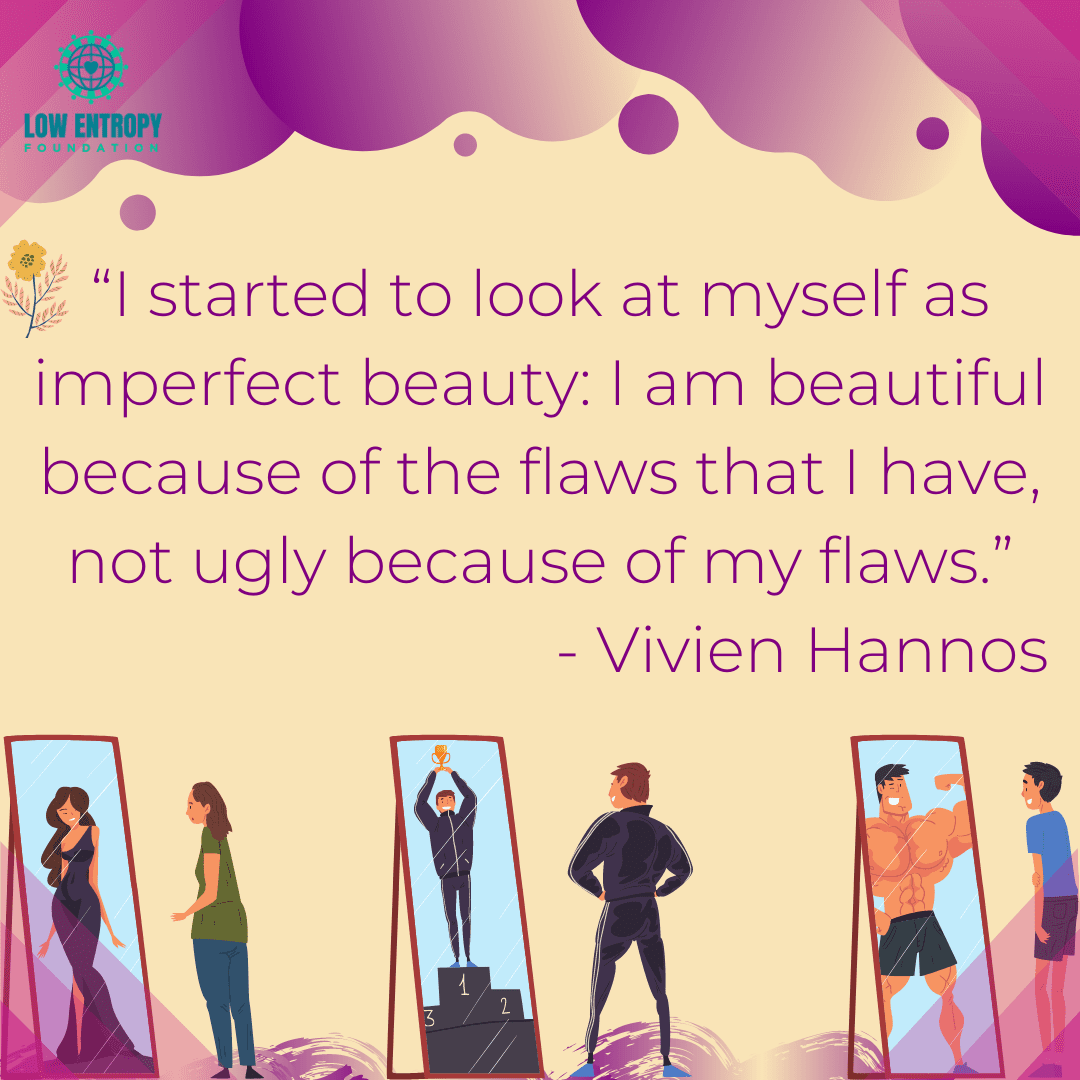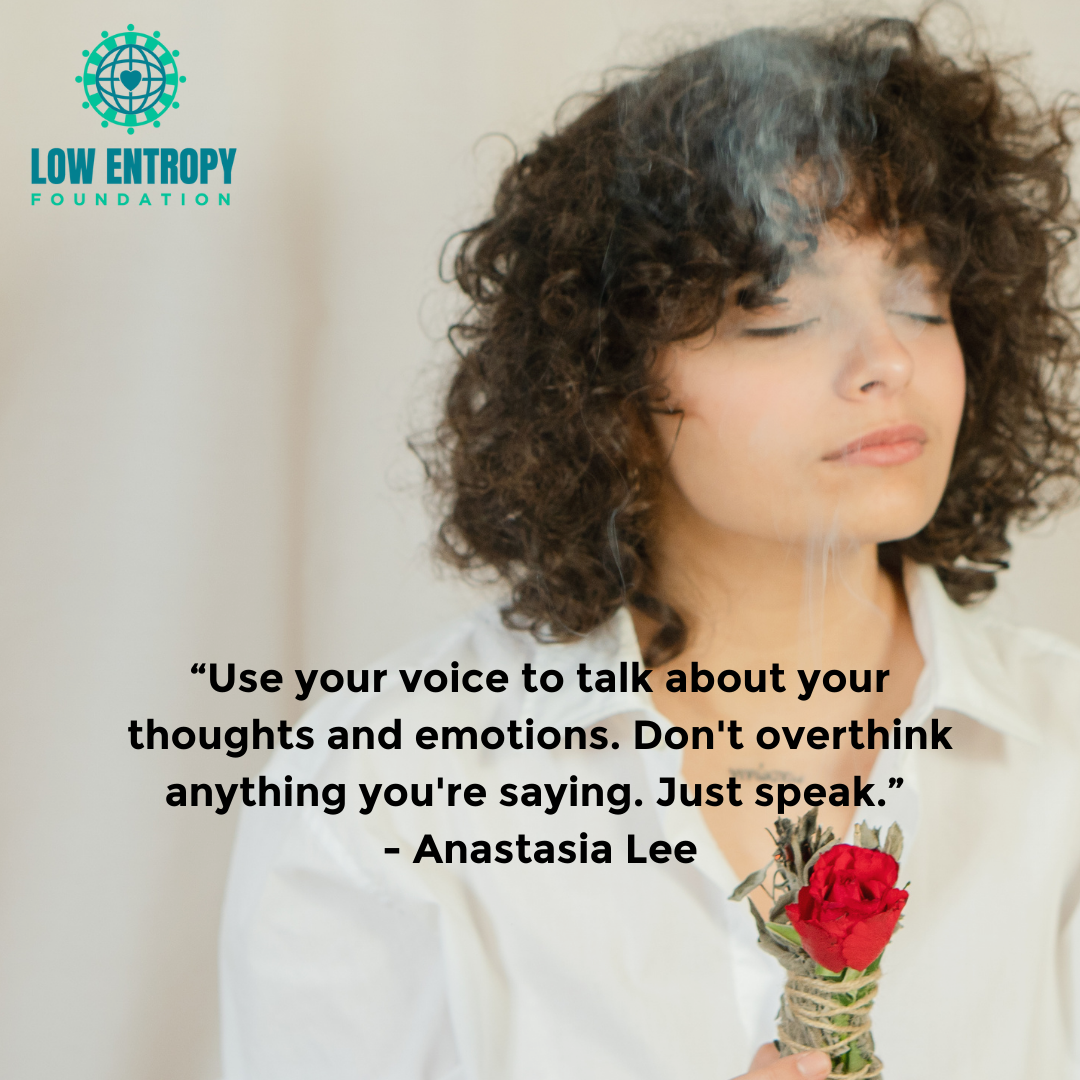Practicing Self-Compassion to Improve Mental Health: My Personal Experience
February 1, 2021

Low Entropy Volunteer Writer Vivien Hannos discusses how being kind to herself creates opportunities for personal growth and improved mental health.
It was 1980, on Valentine’s Day, when I was diagnosed as a type 1 diabetic. I was only five years old. It was a life-altering diagnosis and the end of my childhood innocence. I had to learn how to administer my own shots of insulin and deal with both high and low blood sugar difficulties.
Low blood sugar reactions happen when there is not enough sugar in the bloodstream due to an excess of insulin. They cause me to become confused and shaky, and it is a life-threatening situation if I do not consume juice or sugar immediately. High blood sugar, on the other hand, is equally bad and, over time, can require limb amputation or result in kidney issues or blindness.
My parents, at the time of diagnosis, thought that I needed to do a sport so that I would not lose my limbs to diabetic complications. My dad signed me up to learn to skate at Kerrisdale Arena, and that is where my love of skating started. It wasn’t long before I was wrapped up heavily in the competitive figure skating way of life. I practiced for hours and fell many times in my attempts to land new jumps so I could compete at a high level of skating.
Figure skating, being a subjective sport, relies on judges to determine the rankings of the competitors. I believe that over time, as a result of my disordered thinking of being judged continuously and my desperation to try to advance my ranking, I often examined myself in my attempts to fix my faults and gain a competitive edge. Unfortunately, all I accomplished was learning how to be too self-critical. For example, judges would look at how you behaved, what you wore, your facial expressions and how your body looked, and these were all factors in how one would place in rankings. I dwelt on my negative attributes daily and gave myself constant self-criticism.
According to Dr. Aaron T. Beck, the creator of cognitive behavioral therapy, depression can be caused by negative thinking. Therefore, spending a lot of time in a state of negative self-reflection as I did, can and did lead to an altered mood.
To make matters worse, severe depression, if left untreated, can cause a shift into psychosis, which leaves a person unable to tell what is real and not real while in that state.
This is exactly what happened to me. I got sick with psychosis in 2006 after suffering unknowingly with depression for many years. At the time, leading up to the diagnosis and after already completing my university degree in communications, I was in a school that was training me for medical transcription and under a lot of stress, which put further strain on my brain.
This mental illness devastated me because of many factors. Not only was I humiliated to have a mental illness because of the stigma around mental health issues, but I also felt unlovable and rejected by society.
Psychosis is a serious mental illness, but is treatable with proper medication, which can bring the individual back into reality. As long as the medication is taken at an appropriate dosage, the state of being disconnected from society can be rectified. However, all you hear in the news are stories of people who are violent with mental illness. This is actually quite rare, but stigma remains.
I was brought under the careful watch of a psychiatrist, and with medication and talk therapy (cognitive behavioural therapy), I was told and shown that I was actually very hard on myself. This was the turning point.
I needed to change, and changing is very hard to do. It takes practice. I started to look at myself as imperfect beauty: I am beautiful because of the flaws that I have, not ugly because of my flaws. After retraining my brain to think in this manner by writing in my journal daily, I found that relationships were easier to maintain, and my confidence in myself grew.
I also found that allowing myself to make mistakes frequently, without judging myself, helped as well. It wasn’t long before I noticed that my mood was improving. My mood was further helped with an antidepressant, but the real benefit is from the positive self-compassion I have now.
Have you experienced your own journey toward self-compassion and kindness? Share your stories in the comments, or check out Low Entropy’s services for opportunities to spread positivity to others in a virtual meeting.
GET INVOLVED
At Low Entropy, we believe changing the world starts with changing ourselves.
Founded in 2015, Low Entropy Facilitates conversations that encourage diversity and promote inclusivity.
We understand that life can be confusing at times. It can seem challenging and sometimes you may feel like no one really “gets you.” We offer an opportunity to connect with others who have the capacity to understand you.









